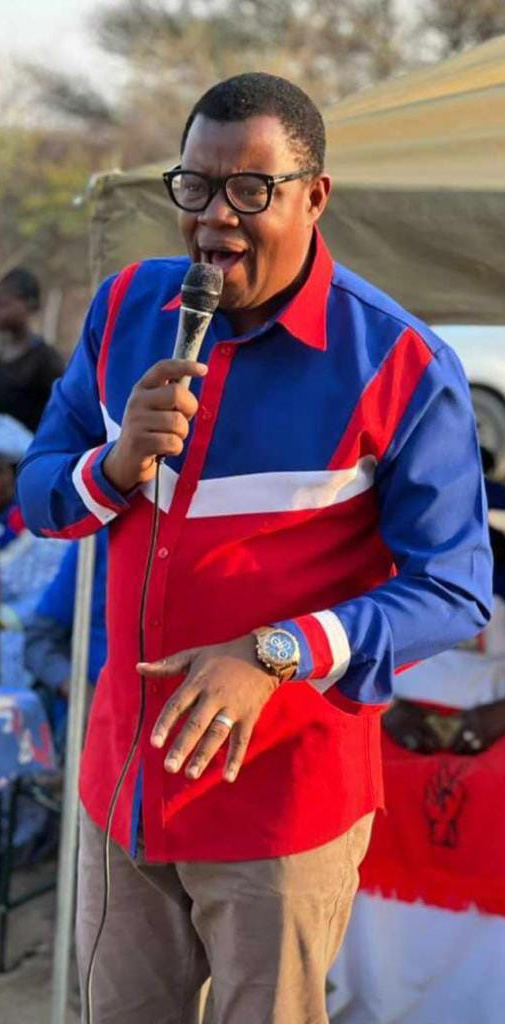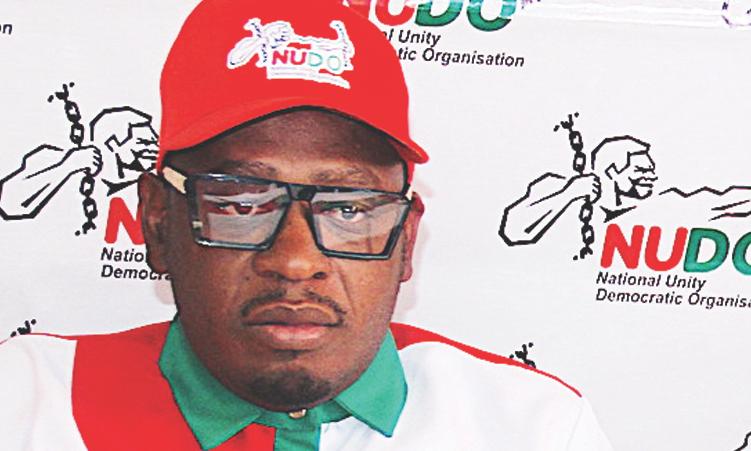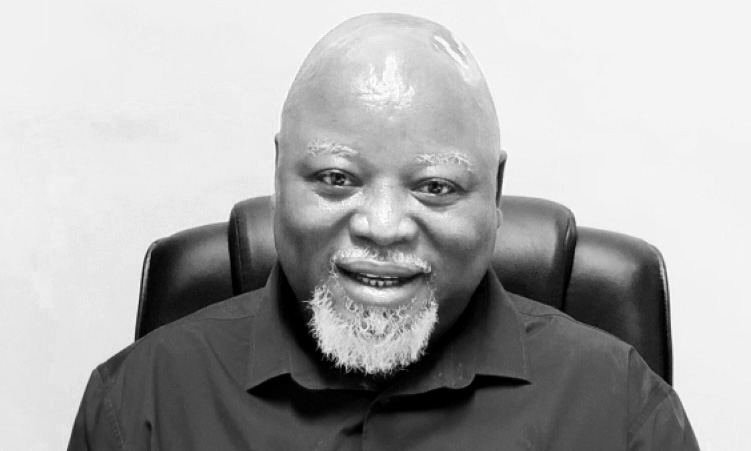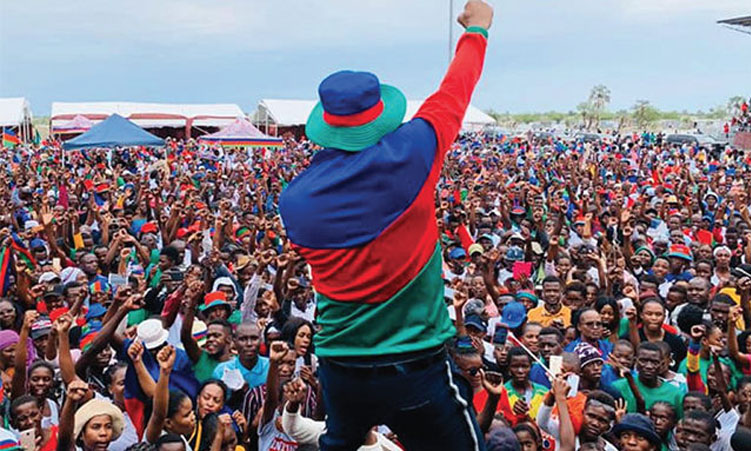
Popular Democratic Movement (PDM) leader McHenry Venaani says the party wants to establish a coalition government so that leaders would start listening to each other.
Venaani said this on Desert Radio yesterday while expanding on his ambition to reduce Swapo’s votes in the upcoming elections to 40%.
Meanwhile, Swapo has poured cold water on any plans for a coalition with other parties ahead of the November presidential and National Assembly elections.
The party is adamant that it will reclaim the two-thirds majority it lost in the 2019 elections.
Deputy secretary general Uahekua Herunga yesterday dismissed rumours that the party is involved in coalition talks to restore its two-thirds parliamentary majority.
Swapo lost its historic parliamentary dominance in the 2019 elections, securing 63 seats – just short of the two-thirds majority needed to pass constitutional changes without the support of other parties.
“There are no coalition talks so far. On 27 November, we are quite sure that we will win back our two-thirds majority,” Herunga said.
If Swapo has two-thirds majorities in both the National Council and the National Assembly, it can change the Namibian Constitution without the agreement of the other parties, as per article 132 of the Constitution.
Since the country’s independence, there have been three constitutional amendment acts – most controversially in 1998 to allow for a third term for founding president Sam Nujoma and in 2014 to enlarge parliament and create a vice presidency position.
“There is no fear, no doubts in the Swapo party at all and we will continue to rule as we normally do,” Herunga said.
In 2020, Swapo’s politburo passed a resolution for the party to enter into coalitions with the National Unity Democratic Organisation (Nudo) and the United Democratic Front (UDF) to govern the 12 local authorities it failed to retain a majority in.
Swapo, however, refuted claims it is considering such talks at this point.
Nudo and UDF dismiss any coalition talks with Swapo .

“There is no truth that they have approached us for a coalition. I can’t say yes or no, it’s up to the leadership to decide when that time comes,” Nudo secretary general Joseph Kauandenge says.
UDF spokesperson Mabasen !Narib says no coalition talks have taken place with any political party.
“The central committee of the party has also not given the party leadership the go-ahead to engage in such talks at this particular moment. Right now, we have not predetermined that we are only going to talk to one specific political party.”
!Narib says possible coalitions depend on the political landscape and situation that arises after the upcoming elections.
“If a particular party approaches us for a coalition, say if there is no one who gets an outright majority and coalitions have to be formed to constitute the two-thirds majority, we are open for coalition talks there,” he says.
‘UPHILL BATTLE’
Political analyst Ndumba Kamwanyah says given the current political landscape and challenges faced by Swapo, regaining its two-thirds majority in the parliament will be a significant uphill battle.
He says Swapo faces several challenges, including high youth unemployment, corruption scandals like Fishrot, internal divisions, poor service delivery, perceived leadership deficits and a lack of clear policy direction.
Kamwanyah says the party’s drift from its founding values, a changing political landscape with stronger opposition and difficulty connecting with the youth demographic could also erode voter support.
“The party will need to address these issues comprehensively to have a realistic chance of regaining its former electoral strength. However, given the current circumstances, it appears unlikely that Swapo will achieve a two-thirds majority on its own,” Kamwanyah says.
Political scientist Johan Coetzee says regaining a two-thirds majority will be difficult for the ruling party as its support has been declining since 2014.
“The question is what has Swapo done in order to regain the confidence of the voters?”
Coetzee says apart from a failure to effectively fight corruption, the ruling party is also faced with a situation where there is a substantial number of youth voters who cannot easily be swayed using the ‘liberation ticket’.
“The total number of people in this country between 18 and 35 is now 71%. All predictions indicate, based on trends analysis, that Swapo is definitely not going to increase its majority and it’s even further declining,” Coetzee adds.

CONFIDENT
“We are very confident that a lot of parties are going to take a lot of votes throughout the country. We want to bring about a coalition government so that we have a country in which we listen to one another,” he said.
Venaani said he and fellow member of parliament Inna Hengari have in the past discussed declaring unemployment a national crisis with president Hage Geingob.
Venaani said as a politician he has always operated on the basis of being undermined by analysts and people.
“When I said we are going to take Swapo from a two-third majority nobody believed us. Swapo before 2019 was a 90% party and it came down to 56%.
“In 2014 when I said I am going to push this party from 2% to greater heights, everybody was laughing at me,” he said.
“We are very used to that negativity from analysts and people commenting. We have trust and confidence in the work we have put in,” he said.
According to Venaani, a leader must always be “a beacon of hope”.
“We are very confident that if Swapo is brought to 56% and the ANC today is roughly at 40%, that is our aim,” he said.
“On 6 April, even before the South African elections, I made a prediction at Okakarara while I was addressing a rally at Clemence Kapuuo’s memorial, that our ambition will be to create a new coalition government or to be in government.”
Stay informed with The Namibian – your source for credible journalism. Get in-depth reporting and opinions for
only N$85 a month. Invest in journalism, invest in democracy –
Subscribe Now!






